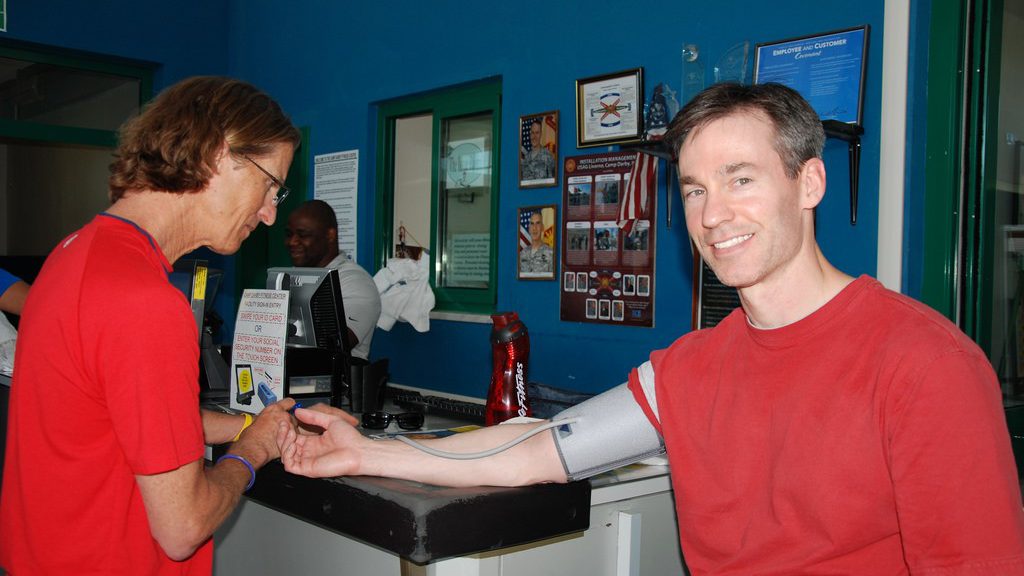As explained last year in “2017 Discoveries Made by Spanking FIT”, the developmental cost of many new pharmaceutical “cures” ranges from hundreds of million to billions of dollars. It is also generally recognized that the majority of government-mandated effectiveness/ safety studies are, in fact, industry-funded. Legitimate concerns regarding the integrity of medical “findings” derived from industry-funded research has made even more urgent the quest for more “natural” and less commercialized remedies and preventative measures such as using l-citrulline.
The field of hypertension (“high blood pressure”) research suffers extensively from the same flaws. Every year, thousands of people are diagnosed with this medical “problem” often labelled “the silent killer”. Hypertension, we are told, “hardens” arteries and limits blood flow to the heart frequently resulting in Coronary Heart Disease (C.H.D.). Ruptured or blocked arteries to the brain result in Cerebral Ischema (“stroke”). Damage to kidneys can also result. Strictly speaking, these opinions are based mainly on observed associations, so that it is not known with certainty if, and under what circumstances, hypertension is their cause or their consequence. For example, arterial “hardening” is known to heighten blood pressure.
Each year, millions of prescriptions are filled for anti-hypertensive drugs. Among the main broad categories are diuretics, beta-blockers, and A.C.E. inhibitors. It is acknowledged that all carry serious side effects. Side effects of beta-blockers, in particular, are especially pernicious: deprivation of brain cells and muscle tissue of an adequate supply of blood.
Some scientists conjecture that as we age, a diminished capacity of the endothelial tissue lining the arteries to produce the gaseous vasodilator Nitric Oxide (NO) contributes to the loss of arterial elasticity and volume and subsequent “hardening”. In many cases, increased blood pressure is only symptomatic. Here’s an analogy: rather than repairing the water pipes, beta-blocker therapy merely turns down the water pressure. Common sense dictates that the intelligent alternative is repair and restoration of the endothelial NO system, if possible. In “Penis Improvement Ideas”, Spanking FIT, Sept. 2016, I explained how the semi-essential amino acid l-arginine and its biological precursor l-citrulline play an essential role in NO production in endothelial cells of veins and arteries. L-citrulline, which can be extracted from watermelon, appears the superior supplement because it undergoes convertion to l-arginine in the kidney and is not degraded by arginase enzymes produced in the gut (see “Pharmacokinetic and pharmacodynamic properties of oral L-citrulline and L-arginine -impact on nitric oxide metabolism” by E. Schwedhelm, British Journal of Clinical Pharmacology, 2008). I explained how vasodilation properties of NO mitigate erectile problems in men by improving blood circulation in their penises. The observed improvements in penile circulation with l-arginine/ l-citrulline supplementation are believed to also take place more generally throughout the whole human circulatory system . Herein lies their potential as a anti-hypertensive remedy.
Evidence supporting claim that l-arginine/ l-citrulline supplementation improves vascular health:
Among the numerous studies I reviewed was “Effect of prolonged oral supplementation with l-arginine on blood pressure and NO synthesis in pre-eclampsia” by K. Rytlewski, et al., published in European Journal of Clinical Investigation, 2005 ((PDF) Effects of prolonged oral supplementation with L-arginine on blood pressure and nitric oxide synthesis in preeclampsia (researchgate.net). One noteworthy feature of their experiment was the acquisition of large enough sample sizes to justify the use of parametric statistical methods on the part of analysts. (The use of inadequately small samples with parametric methods is a common defect in modern medical research which Spanking FIT has frequently voiced concern about. See: ABOUT US)
In this prospective, randomized, placebo-controlled study, 61 pregnant women diagnosed with pre-eclampsia were assigned to either treatment with 3 gm. per day of l-arginine, or placebo for three weeks. Pre-eclampsia is a serious pregnancy complication characterized by high blood pressure. It usually occurs in the second trimester of pregnancy. It affects blood flow to the placenta and can lead to premature child birth and death. Authors stated that their conclusions were based on the statistical techniques of repeated measures ANOVA and paired t-test which were used to analyze changes in estimated parameters over the three week treatment period. The parameters included brachial systolic blood pressure (bSBP), brachial diastolic blood pressure (bDBP), mean arterial pressure (MAP), which is derived from the latter two, and 24-hour urinary excretion of NOx (NO & NO2). However, in their publication, authors reported only that three weeks later, bSBP, bDBP, and urinary excretion status were statistically significantly better in the treatment versus placebo groups. (Results of the ANOVA and paired t-tests were not reported.) Perhaps, this was only an unintentional omission on their part.
Nonetheless, study results support hypothesis that dysfunction of the endothelial-l-arginine-NO system may be responsible for heightened blood pressure of patients and that l-arginine supplementation may be of therapeutic value.
This study was limited to the population of pregnant women with pre-eclampsia only, so that it may not be applicable to the general population of all hypertensives. Also, there exists a slight appearance of a conflict of interest in so far as one of its authors consults for the l-arginine maker Curtis Health Care, Poznan, Poland.
A plethora of endeavors relevant to the L-citrulline theory of hypertension has originated in recent years at Florida State University from the labs of Professor Arturo Figueroa. This research is of a very serious and impressive nature from a physiological perspective and the Professor is to be commended highly for pursuing it. I present here the results of my evaluation of his three principal publications. Bear in mind that each contains statistical flaws which compromises its impact on medical science.
(1) “Effects of Watermelon Supplementation on Aortic Hemodynamic Responses to the Cold Pressor Test in Obese Hypertensive Adults” by A. Figueroa et al., pub. in American Journal of Hypertension, 2014
The main objective of the study was to determine if supplementation with a combination of l-arginine and l-citrulline could be of therapeutic value to a group of mature (45-70 years), hypertensive (bSBP exceeding 140), and obese (BMI 30 or higher) adults. The experiment was constructed as a randomized crossover design whereby each participant received either treatment (4 gm citrulline per day + 2 gm arginine per day) or a placebo for six weeks. A two-week washout period was used before crossing over. In addition to standard brachial blood pressure measurements, a wide spectrum of more impressive aortic hemodynamic parameters was estimated using applanation tonometry (see: “Wave travel and reflection in the arterial system” by M. O’Rourke, Journal of Hypertension- Supplement, 1999.) Specific parameters included aortic systolic blood pressure (aSPB), aortic diastolic blood pressure (aDBP), and augmentation index (AIx) which are believed to provide greater insight into the health status of the circulatory system than peripheral measurments. AIx, in particular, is believed by cardiologists to be an accurate summary measure of the amount of arterial stiffness present in the aorta, the largest artery in the human body.
In addition to taking resting measurements, researchers also took measurements on subjects in a “stressed” state by applying the Cold Pressor Test (C.P.T.). The latter consists of placement of the right hand of participant in bucket of ice cold water for two minutes up to the wrist. (Sometimes an ankle is used in lieu of the wrist in performing C.P.T.) What was the relevancy of this test? It is believed that a cold environment induces increases in aortic blood pressure and can lead to adverse cardiac events in hypertensive patients by increasing ventricular after-load. After-load is the end load against which the heart contracts to eject blood during the systolic cardiac cycle.
Researchers reported statistically significant decreases in resting bSBP, bDBP, aSBP, and aDBP following the treatment. In C.P.T. group, similar decreases took place. Moreover, a significant decrease in aortic pulse pressure (aPP), the difference between systolic and diastolic, also occurred. High aPP has been associated with stiffness in the aorta and a build-up of atherosclerosis (fatty deposits on the arterial walls). There was also a reported decrease in other important indicators, namely augmentation pressure (AP), and the systolic time index (STI) in the stressed and treated group. STI measures myocardial oxygen demand. However, on the down side, no significant results were discovered for any of the augmentation indices- AIx or AIx75, in either the resting or C.P.T. state.
As impressive as this study is from a physiological perspective, it contains the very same flaws in statistical analyses commonly present in much modern medical research. The principal flaw was the use of parametric statistical methods (t-test and ANOVA) in conjunction with very small sample sizes (n1= n2= 13). Researchers should have, at the very least, attempted to start out by using non-parametric tests such as Wilcoxon signed-rank; or, they should slow down and estimate fewer physiological parameters using much larger patient sample sizes. Just as importantly, differences in means between placebo and treatment groups were insignificant across the board for all parameters as evidenced by 95% confidence intervals that all contained zero. I’m curious as to why researchers forgot to mention this in their publication?
(2) “Oral L-citrulline Supplementation Attenuates Blood PressureResponse to Cold Pressor Test (C.P.T.) in Young Men” by A. Figueroa, pub.in American Journal of Hypertension, Jan. 2010.
If dysfunction of the endothelial l-arginine- NO system contributes to hypertension, it is reasonable to expect that supplementation given to normotensives would not significantly affect their blood pressure. This situation contrasts with pharmaceutical medications that have a sometimes dangerous blood pressure lowering effect, regardless of the patient’s health status. This randomized double-blind cross-over experiment initially involved eighteen young males (average age around 21) who were of “normal” weight and Body Mass Index (B.M.I.). In addition, each was considered normotensive (bSBP under 140, bDBP under 90). Consistent with the above stated theory, statistically significant decreases in blood pressure did not occur in either group (treatment or placebo) in the rested state. However, when the researchers stressed each subject by applying C.P.T., a statistically significant drop was observed in bSBP, aSBP, and aPP in the l-citrulline treated group. As previously explained, heightened aPP has been associated with aortic stiffness and an increased risk of a cardiovascular event occurring. In terms of variables affected and their magnitude of change, results were consistent with those obtained from the previous experiment involving older hypertensives when C.P.T. was applied to them.
From a statistical perspective, the study contained all of the previously explained flaws, including use of parametric tests with very small samples. Also, it should be mentioned that the daily dosage of l-citrulline (6 gm.) which was administered to subjects is the equivalent of consuming almost two pounds of red watermelon flesh (See “Determination of citrulline in watermelon rind” by A.M. Rimando, Journal of Chromatography A, June 2005.)
(3) “L-Citrulline supplementation attenuates blood pressure, wave reflection, and arterial stiffness responses to metaboreflex and cold stress in overweight men” by A. Figueroa, British Journal of Nutrition, 2016; 116
In this experiment, sixteen “healthy” overweight young men were randomly assigned to 6 gm. per day of l-citrulline or placebo for fourteen days, again using a cross-over design. Overweight individuals were deliberately chosen because they have been observed to possess heightened systolic blood pressure reactivity to the Cold Pressor Test (C.P.T.) by way of increased sympathetic nervous activity (the so called “fight or flight” response). As was previously explained, the combined stimuli of exercise and cold are postulated to increase the risk of certain cardiovascular events occurring by elevating cardiac after-load. Consequently, in this experiment, researchers chose to stress subjects in three distinct manners: (1) by having them perform isometric hand grip (I.H.G.) exercises (2) with I.H.G. followed by post-exercise muscle ischemia (P.E.M.I.) induced by using a rapidly inflatable upper arm cuff, and (3) P.E.M.I. combined with C.P.T. Researchers next tested hypothesis that l-citrulline supplementation separately attenuates hemodynamic responses under each of these three conditions. They reported a statistically significant lowering of bSBP, bDBP, aSBP, aAP, AIx,and aMAP from baseline in group three when treated with l-citrulline; hence, an even wider parameter array was influenced by P.E.M.I. plus C.P.T., than when C.P.T. stress alone was applied. In the resting state, all parameters appeared unaffected with exception of aAP. Results obtained favor the hypothesis that heightened cardiac risk due to cold weather physical assertion may be abetted by using l-citrulline supplements.
From a statistical perspective, the study contains all the previously explained flaws. Slowdown researchers, and if economy is of concern, collect data on fewer physiological parameters, but with larger sample sizes; i.e. use more patients!
“The effect of oral l-arginine supplementation on blood pressure in patients with Metabolic Syndrome: a randomized controlled trial” by D. Bahrami er al., Iranian Journal of Diabetes and Obesity, 2018.
By far, one of the more reassuring works supporting the l-arginine/ citrulline hypertension hypothesis. Researchers used a relatively larger sample of subjects (n1= n2= 28) from the population of Metabolic Syndrome (M.S.) sufferers. M.S. is characterized by abdominal obesity, dyslipidemia (high cholesterol), hyperglycemia (high blood sugar), and hypertension. While measured parameters were not as sophisticated as in the previous studies (only peripheral brachial BP was measured), the larger sample sizes they employed better justified their use of parametric statistical techniques.
Subjects were randomly assigned to either treatment (5 gm. L-arginine per day) or placebo for 12 weeks. Statistically significant decreases in bSBP , bDBP, and M.A.P. of similar magnitude to those reported in the previous Figueroa study of obese hypertensive adults were obtained, in the treatment group.
The Iranian study perhaps represents the best single piece of scientific evidence to date supporting l-arginine/ citrulline use for improved circulatory health, in my opinion.
Conclusion
Each year millions of prescriptions are filled for pharmaceutical products developed to treat the so-called medical condition hypertension or “high blood pressure” (the “silent killer”). All products carry with them serious side effects. Those of one category, in particular, the beta-blockers, are especially serious and include deprivation of brain and muscle tissue of healthy blood supply. Most prescribed anti-hypertensives do little to address the probable root cause of the condition- dysfunction of the endothelial l-arginine-NO system.
There’s an abundance of scientific evidence that supplementation with the semi-essential amino acid l-arginine or with its biological precursor l-citrulline improves the ability of arterial endothelial tissue to produce vasodilator gaseous NO; and, therefore, improves arterial elasticity preventing consequent “hardening”. Unfortunately, much of the relevant research contains flaws common to practically all modern medical research: use of inappropriate parametric statistical tests in conjunction with collected small sample sizes. Researchers and analysts need to either use the appropriate methods, or to slow-down and collect larger samples on fewer physiological parameters.
Given the profound implications of my preliminary findings to Cardiovascular Medicine, Spanking FIT recommends that large-scale clinical trials funded and conducted by independent sources commence immediately testing the l-arginine hypothesis. Moreover, long-term prospective studies are needed to test the potential for l-arginine/ citrulline supplementation to prevent cardiovascular ailment (i.e., assessment of its effectiveness as a significant preventative medicine measure).
Thanks again. I hope that you found this investigation informative and useful. Be sure to read “Penis Improvement Ideas”, Sept. 2016, where I evaluated the effectiveness of l-citrulline to improve penile size and sexual performance in men, if you missed it. As usual, I look forward to your important feedback. Dr. Garrett



